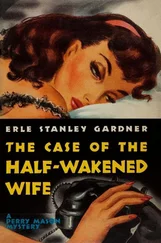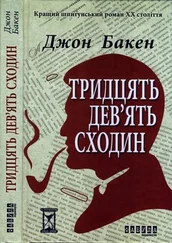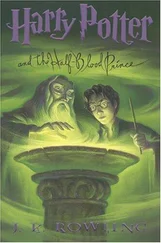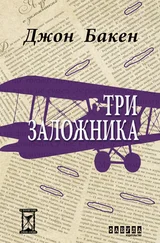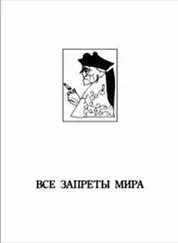Джон Бакен - The Half-hearted
Здесь есть возможность читать онлайн «Джон Бакен - The Half-hearted» весь текст электронной книги совершенно бесплатно (целиком полную версию без сокращений). В некоторых случаях можно слушать аудио, скачать через торрент в формате fb2 и присутствует краткое содержание. Жанр: Детектив, на английском языке. Описание произведения, (предисловие) а так же отзывы посетителей доступны на портале библиотеки ЛибКат.
- Название:The Half-hearted
- Автор:
- Жанр:
- Год:неизвестен
- ISBN:нет данных
- Рейтинг книги:5 / 5. Голосов: 1
-
Избранное:Добавить в избранное
- Отзывы:
-
Ваша оценка:
- 100
- 1
- 2
- 3
- 4
- 5
The Half-hearted: краткое содержание, описание и аннотация
Предлагаем к чтению аннотацию, описание, краткое содержание или предисловие (зависит от того, что написал сам автор книги «The Half-hearted»). Если вы не нашли необходимую информацию о книге — напишите в комментариях, мы постараемся отыскать её.
The Half-hearted — читать онлайн бесплатно полную книгу (весь текст) целиком
Ниже представлен текст книги, разбитый по страницам. Система сохранения места последней прочитанной страницы, позволяет с удобством читать онлайн бесплатно книгу «The Half-hearted», без необходимости каждый раз заново искать на чём Вы остановились. Поставьте закладку, и сможете в любой момент перейти на страницу, на которой закончили чтение.
Интервал:
Закладка:
Thwaite put down the ear-trumpet, his face very white and perspiring.
He looked at his watch; it was just on nine o'clock. The moon had arisen and the telegram said "moonrise." He could not doubt the genuineness of the message when he had heard at the end the names Winterham and Haystoun. Already Marker might be through the pass, and little the Khautmi people could do against him. He must be checked at Bardur, though it cost every life in the garrison. Four hours' delay would arm the north to adequate resistance.
He telephoned to the telegraph office to shut and lock the doors and admit no one till word came from him. Then he summoned his Sikh orderly, his English servant, and the native officers of the garrison.
He had one detachment of Imperial Service troops officered by Punjabis, and a certain force of Kashmir Sepoys who made ineffective policemen, and as soldiers were worse than useless. And with them he had to defend the valley, and hold the native town, which might give trouble on his flank. This was the most vexatious part of the business. If Marker had organized the thing, then nothing could be unexpected, and treachery was sure to be thick around them.
The men came, saluted, and waited in silence. Thwaite sat down at a table and pulled a sheaf of telegraph forms to pieces. First he wired to Ladcock at Gilgit, beseeching reinforcements. From Bardur to the south there is only one choice of ways-by Yasin and Yagistan to the Indus Valley, or by Gilgit and South Kashmir. Once beyond Gilgit there was small hope of checking an advance, but in case the shorter way to the Indus by the Astor Valley was tried there might be hope of a delay.
So he besought Ladcock to post men on the Mazeno Pass if the time was given him. Then he sent a like message to Yasin, though on the high passes and the unsettled country there was small chance of the wires remaining uncut. A force in Yasin might take on the flank any invasion from Afghanistan and in any case command the Chitral district. Then came a series of frantic wires at random-to Rawal Pindi, to the Punjabi centres, to South Kashmir. He had small confidence in these messages.
If the local risings were serious, as he believed them to be, they would be too late, and in any case they were beyond the country where strategical points were of advantage against an invader. There remained the stations on the Indus Valley railway, which must be the earliest point of attack. The terminus at Boonji was held by a certain Jackson, a wise man who inspired terror in a mixed force of irregulars, Afridis, Pathans, Punjabis, Swats, and a dozen other varieties of tribesmen. To him he sent the most lengthy and urgent messages, for he held the key of a great telegraphic system with which he might awake Abbotabad and the Punjab. Then, perspiring with heat and anxiety, he gave the bundle into the hands of his English servant, and told off an officer and twenty men to hold the telegraph office. A blue light was to be lit in the window if the native town should prove troublesome and reinforcements be needed.
Soon the force of the garrison was assembled in the yard, all but a few who had been sent on messages to the more isolated houses of the English residents. Thwaite addressed them briefly: "Men, there's the devil's own sweet row up the north, and it's moving down to us. This very night we may have to fight. And, remember, it's not the old game with the hillmen, but an army of white men, servants of the Tsar, come to fight the servants of the Empress. Therefore, it is your duty to kill them all like locusts, else they will swallow up you and your cattle and your wives and your children, and, speaking generally, the whole bally show.
We may be killed, but if we keep them back even for a little God will bless us. So be steady at your posts."
The garrison was soon dispersed, the guns in readiness, pointing up the valley. It was ten o'clock by Thwaite's watch ere the last click of the loaders told that Bardur was awaiting an enemy. The town behind was in an uproar, men clamouring at the gates, and seeking passports to flee to the south. Chinese and Turcoman traders from Leh and Lhassa, Yarkand and Bokhara, with scared faces, were getting their goods together and invoking their mysterious gods. Logan, who had returned from Gilgit that very day, rode breathless into the yard, clamouring for Thwaite.
He received the tale in half a dozen sentences, whistled, and turned to go, for he had his own work to do. One question he asked: "Who sent the telegrams?"
"Haystoun and Winterham."
"Then they're alone at Nazri?"
"Except for the Khautmi men."
"Will they try to hold it?"
"I should think so. They're all sportsmen. Gad, there won't be a soul left alive."
Logan galloped off with a long face. It would be a great ending, but what a waste of heroic stuff! And as he remembered Lewis's frank good-fellowship he shut his lips, as if in pain.
The telegrams were sent, and reply messages began to pour in, which kept one man at the end of the telephone. About half-past ten a blue light burned in the window across the river. There seemed something to do in the native town of narrow streets and evil-smelling lanes, for the sound of shouting and desultory firing rose above the stir of the fort. The telegraph office abutted on the far end of the bridge, and Thwaite had taken the precaution of bidding the native officer he had sent across keep his men posted around the end of the passage. Now he himself took thirty men, for the native town was the most dangerous point he had to fear. The wires must not be cut till the last moment, and, as they passed over the bridge and then through the English quarter, there was small danger if the office was held. He found, as he expected, that the place was being maintained against considerable odds. A huge mixed crowd, drawn in the main from the navvies who had been employed on the new road, armed with knives and a few rifles, and encouraged by certain wild, dancing figures which had the look of priests, was surging around the gate. The fighting stuff was Afridi or Chitrali, but there was abundance of yelling from this rabble of fakirs and beggars who accompanied them. Order there was none, and it was clear to Thwaite that this rising had been arranged for but not organized. His men had small difficulty in forcing a way to the office, where they served to complete the cordon of defence and the garrison of the bridge-end. Two men had been killed and some half-dozen of the rioters. He pushed into the building, and found a terrified Kashmir clerk sternly watched by his servant and the Sikh orderly. The man, with tears streaming down his face, was attempting to read the messages which the wires brought.
Thwaite picked up and read the latest, which was a scrawl in quavering characters over three telegraph forms. It was from Ladcock at Gilgit, saying that he was having a row of his own with the navvies there, and that he could send no reinforcements at present. If he quieted the trouble in time he would try and hold the Mazeno Pass, and meanwhile he had done his best to wake the Punjab. As the wires would be probably cut within the next hour there would be no more communications, but he besought Thwaite to keep the invader in the passes, as the whole south country was a magazine waiting for a spark to explode. The message ran in short violent words, and Thwaite had a vision of Ladcock, short, ruddy, and utterly out of temper, stirred up from his easy life to hold a frontier.
There was no word from Yasin, as indeed he had expected, for the tribes on the highlands about Hunza and Punial were the most disaffected on the Border, and doubtless the first to be tampered with. Probably his own message had never gone, and he could only pray that the men there might by the grace of God have eyes in their heads to read the signs of the times. There was a brief word from Jackson at Boonji. There attacks had been made on the terminus and the engine-sheds since sunset, which his men had luckily had time to repulse. A large amount of rolling-stock was lying there, as five freight trains had brought up material for the new bridge the day before. Of this the enemy had probably had word. Anyhow, he hoped to quiet all local disturbances, and he would undertake to see that every station on the line was warned.
Читать дальшеИнтервал:
Закладка:
Похожие книги на «The Half-hearted»
Представляем Вашему вниманию похожие книги на «The Half-hearted» списком для выбора. Мы отобрали схожую по названию и смыслу литературу в надежде предоставить читателям больше вариантов отыскать новые, интересные, ещё непрочитанные произведения.
Обсуждение, отзывы о книге «The Half-hearted» и просто собственные мнения читателей. Оставьте ваши комментарии, напишите, что Вы думаете о произведении, его смысле или главных героях. Укажите что конкретно понравилось, а что нет, и почему Вы так считаете.

